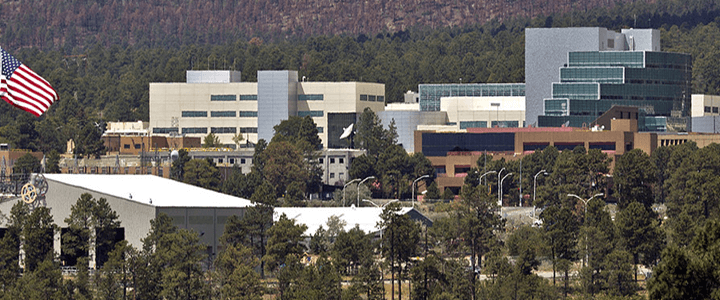Today more than 3 million Americans have some form of security clearance, and while the Department of Defense and its government contractors account for the majority of those positions, there are overlooked opportunities for those who have an interest in the energy sector.
The ClearanceJobs 2017 Security Clearance Compensation Survey found that Department of Energy security clearance-holders actually saw the largest bump in pay of any demographic. The average base salaries for DoE candidates increased by 7.5 percent nationally, while average total comp salaries increased by 8 percent. Median total compensation increased by 14 percent.The average base salary for those holding DoE security clearance was $93,392.
Going Nuclear: Where the Jobs Are
New Mexico remains “ground zero” in many ways for all things nuclear. The state’s Los Alamos Laboratory was one of the Manhattan Project sites where the atomic bomb was developed during World War II. Nearby Jornadadel Muerto desert was home to Trinity, the code name of the first denotation of a nuclear weapon.
The Los Alamos National Laboratory today has an annual budget around $2.2 billion, and is the senior laboratory in the United States Department of Energy National Laboratories and Technology Centers. These facilities work to advance science and technology and to fulfill the DoE mission.
Two New Mexico sites are also being considered to test nuclear waste disposal systems, including spent fuel rods from nuclear reactors. Sites are being considered in Otero County and Nara Visa in Quay County in New Mexico, as well as in Haakon County, South Dakota and Fort Stockton in Texas.
From Atomic Bombs to cybersecurity
While many may think about energy jobs being focused on the nuclear arsenal, cybersecurity is also a critical part of the DoE and nuclear security mission.
“Careers in the Nuclear Security Enterprise are part of a growing sector in cutting-edge science and technology,” explained Amy R. Boyette, acting press secretary for the National Nuclear Security Administration (NNSA), a division of the U.S. Department of Energy, via an email.
“NNSA’s workforce is made up of dedicated professionals who are leaders in their fields, including occupations in cybersecurity, counterterrorism, and nonproliferation,” Boyette told ClearanceJobs. “As part of the National Security Enterprise, NNSA recruits highly qualified candidates in these competitive fields to support our mission. Our employees’ pay increases are performance-based, which provides faster pay progression for high performing employees consistent with the results-oriented performance culture within NNSA.”
Rebuilding Our Energy Infrastructure
Another driving trend in salaries right now could be related to promises made by President Trump towards building out the nation’s infrastructure, which could include substantial work on the electricity grid.
Dr. Steven C. Agee of the Meinders School of Business at Oklahoma City University suggests the DoE may ramp up hiring as both building and protecting critical infrastructure become a budget priority.
The other issue driving DoE salaries up? The agency is one of many battling for critical cyber talent.
“Threats against critical infrastructure are a part of today’s reality and utility employees with a cybersecurity background are essential to our core mission of keeping customers and communities safe,” said Lori S. Traweek, chief operating officer at the American Gas Association.
“Coordination between natural gas utilities and our partners in the government on threat detection and mitigation is essential and having a security clearance can give employees who need it a greater understanding of the nature of threats and how to guard against them,” she told ClearanceJobs. “The American Gas Association and many of our members have applied for these clearances at every level to heighten our vigilance against cyber attacks.”




